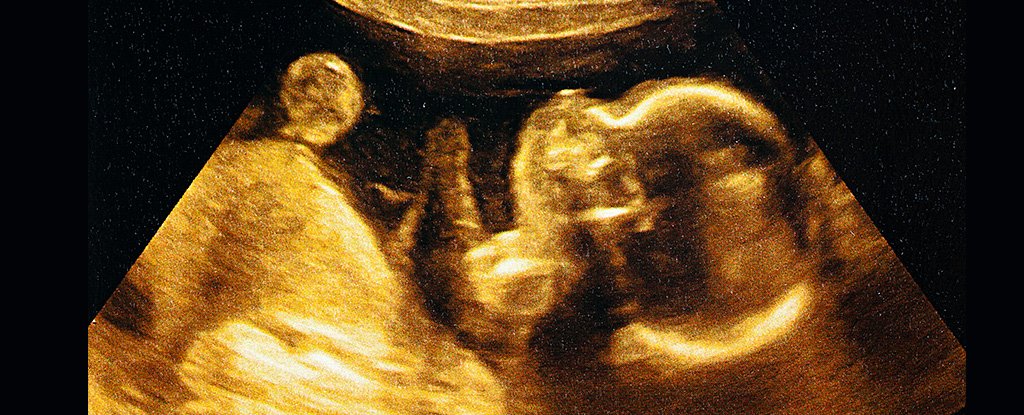
One of the deadliest conditions of pregnancy can now be detected with a simple blood test, long before it threatens the life of the mother.
Placenta accreta spectrum disorders (PAS) describe several rare conditions where the placenta fails to detach properly following childbirth. Though they impact less than half a percent of all pregnancies, their incidence has increased a hundred-fold since the 1950s thanks to an increase in cesarean delivery.
One of the more prevalent forms occurs when the placenta grows too deep into the uterine wall and does not spontaneously detach after delivery. If the organ is not properly removed, it can lead to a huge loss of blood, causing serious illness and even death.
The earlier a diagnosis is made, the better the outcomes for both the mother and the baby, and yet recent population studies in the United States have shown PAS goes undetected in roughly half of all cases.
The condition is extremely difficult to detect and is usually diagnosed through ultrasounds and a mother's pregnancy history. A previous cesarean delivery, for instance, is linked to a greater risk of developing the disorder, as is a history of placenta previa, which occurs when the placenta partially or fully covers the cervix. Still, ultrasounds are expensive and their ability to reveal PAS is largely dependent on the expertise of the sonographer.
A simple blood test could now provide a more objective and standardized approach. By focusing on certain embryonic cells called trophoblasts in the bloodstream, researchers have figured out how to precisely detect PAS in the earliest stages of pregnancy.
Trophoblasts are usually found in relatively small numbers within days of pregnancy beginning, but when these cells show up in greater quantities and in clusters, it's far more likely to indicate the presence of PAS.
In light of this knowledge, researchers at the University of California Los Angeles have designed a special microchip, dubbed the NanoVelcro Chip, that can sort through single and clustered trophoblasts in the blood.
The postage stamp-sized chip achieves it's Velcro-like stickiness through a grid of nanowires, each of which is coated in an antibody that locks on to trophoblasts in the blood. A microscope can then be used to detect how many trophoblasts are on the chip and whether they are clustered or in singles.
"Seeing a trophoblast cluster for the first time was like seeing glistening pearls," says pathologist Yazhen Zhu from UCLA.
"When we saw the cells on the microscope, it felt like we had a direct view into the placenta in the developing pregnancy."
For the past 15 years, researchers at UCLA have been developing and designing the NanoVelcro Chip to detect tumor cells, and yet the new update suggests with just a few tweaks, the technology can be used to detect a wider variety of health conditions as well.
When the newly developed blood test was trialed on 168 pregnant people, some of whom had PAS, some of whom had placenta previa, and some of whom had a normal placenta, researchers were able to detect the presence of PAS with nearly 80 percent accuracy.
What's more, the test was 93 percent accurate at ruling out a negative result.
"With the unreliability of the current screening methods for placenta accreta, we saw a pressing need to create an easy-to-implement screening that can be conducted early in the pregnancy in all healthcare settings regardless of resources available to patients," explains obstetrician and gynecologist Yalda Afshar from UCLA.
The blood test wasn't designed to replace ultrasounds or maternal history, but rather to bolster their success at detecting PAS in the earliest stages of pregnancy.
When the trophoblast analysis was combined with ultrasounds for diagnosis, researchers were able to predict the presence of PAS with even greater accuracy than either method on its own - and that was true no matter what stage of pregnancy the mother was in.
This suggests the new blood test can be a useful way to diagnose PAS throughout gestation, even as early as the first trimester.
"A noninvasive approach for the early detection of PAS is valuable to inform providers and women of their high-risk pregnancy in all health systems," researchers write, "especially in low resource and rural settings without sub-specialists trained in ultrasound."
The study was published in Nature Communications.
"condition" - Google News
August 09, 2021 at 09:00AM
https://ift.tt/37qKAxU
A Simple Blood Test Could Reveal a Rare Yet Deadly Pregnancy Condition - ScienceAlert
"condition" - Google News
https://ift.tt/2W6ON50
https://ift.tt/2L1ho5r
Bagikan Berita Ini

















0 Response to "A Simple Blood Test Could Reveal a Rare Yet Deadly Pregnancy Condition - ScienceAlert"
Post a Comment